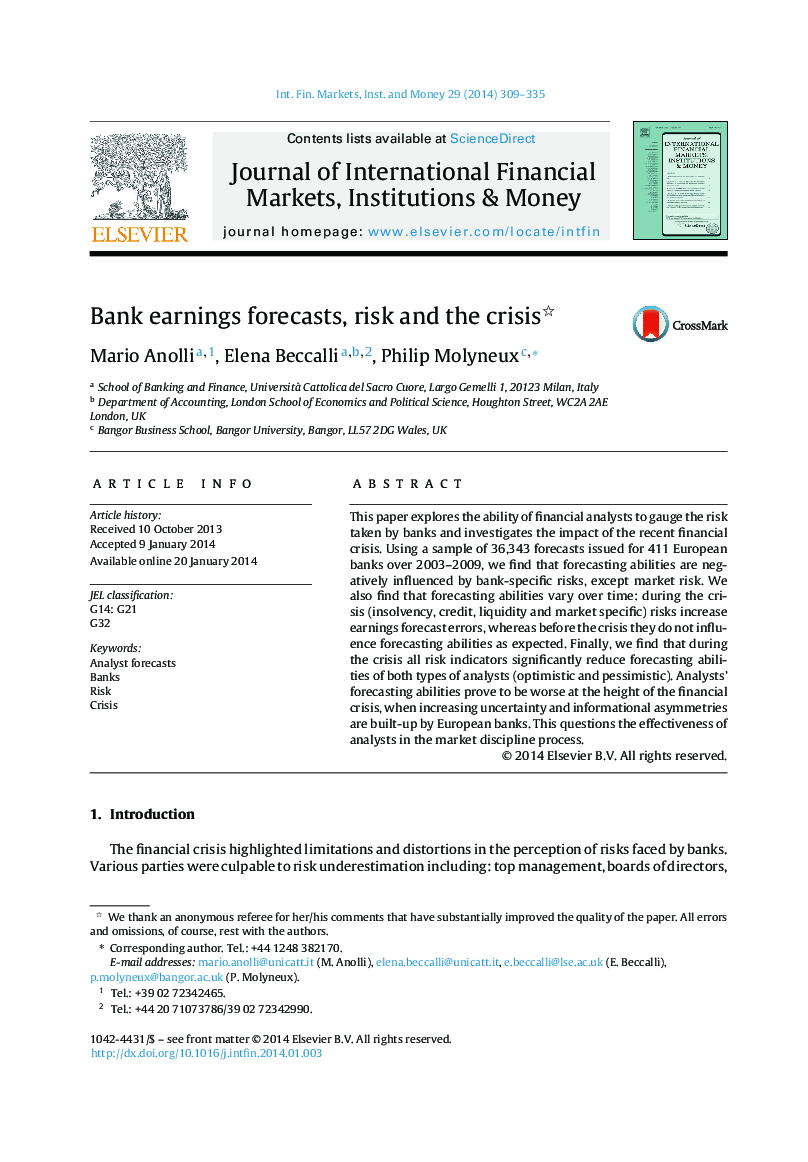| Article ID | Journal | Published Year | Pages | File Type |
|---|---|---|---|---|
| 963162 | Journal of International Financial Markets, Institutions and Money | 2014 | 27 Pages |
Abstract
This paper explores the ability of financial analysts to gauge the risk taken by banks and investigates the impact of the recent financial crisis. Using a sample of 36,343 forecasts issued for 411 European banks over 2003-2009, we find that forecasting abilities are negatively influenced by bank-specific risks, except market risk. We also find that forecasting abilities vary over time: during the crisis (insolvency, credit, liquidity and market specific) risks increase earnings forecast errors, whereas before the crisis they do not influence forecasting abilities as expected. Finally, we find that during the crisis all risk indicators significantly reduce forecasting abilities of both types of analysts (optimistic and pessimistic). Analysts' forecasting abilities prove to be worse at the height of the financial crisis, when increasing uncertainty and informational asymmetries are built-up by European banks. This questions the effectiveness of analysts in the market discipline process.
Keywords
Related Topics
Social Sciences and Humanities
Economics, Econometrics and Finance
Economics and Econometrics
Authors
Mario Anolli, Elena Beccalli, Philip Molyneux,
